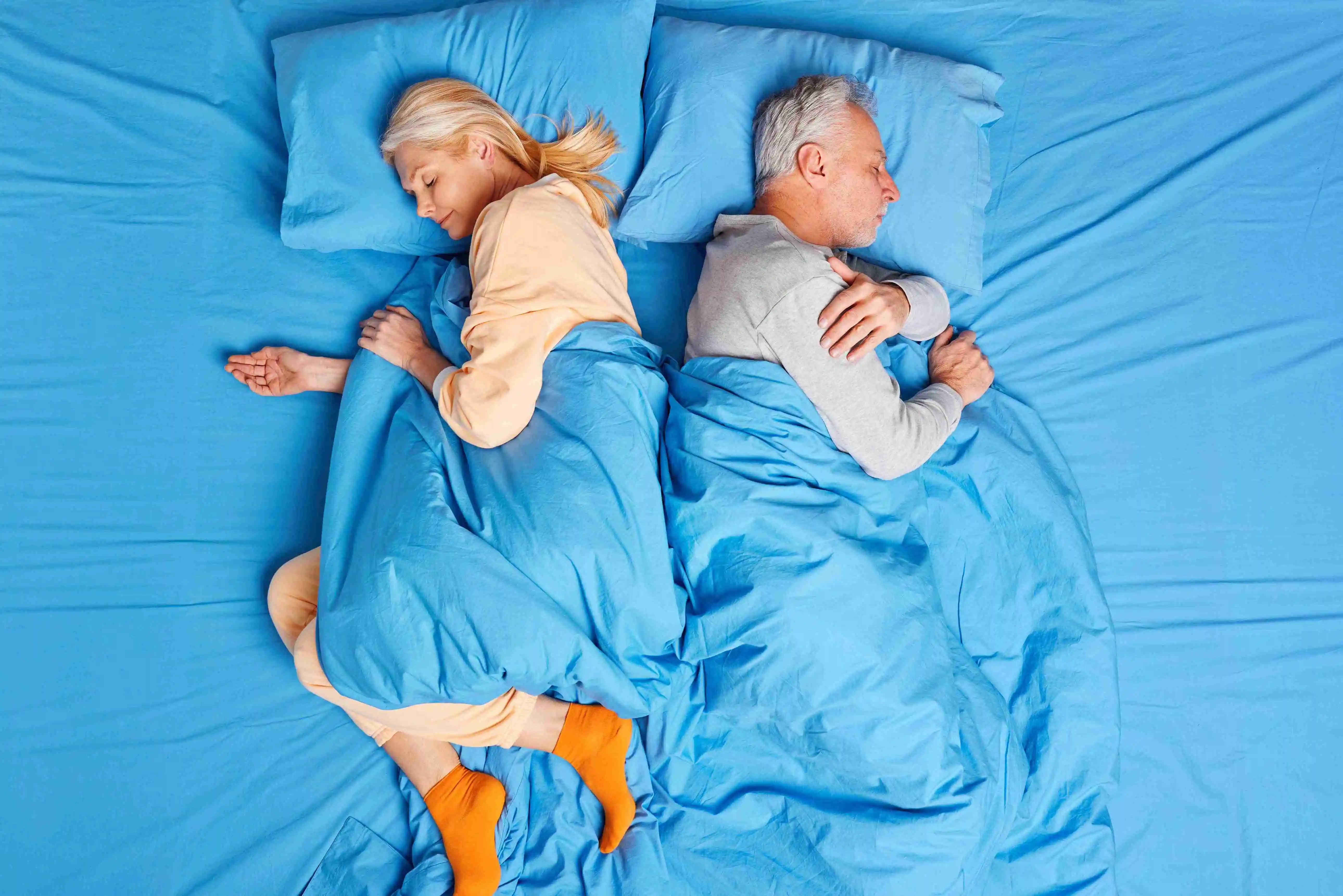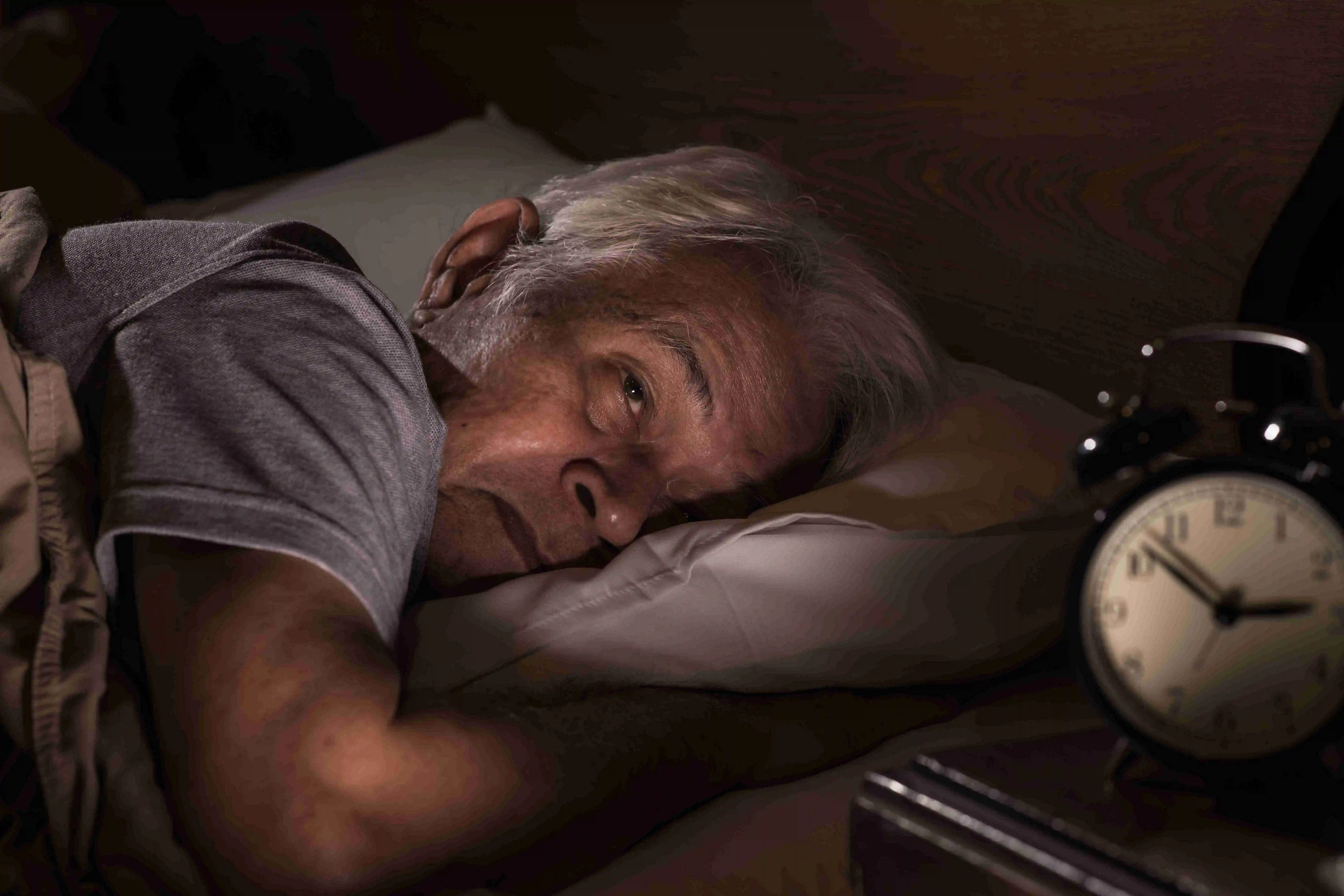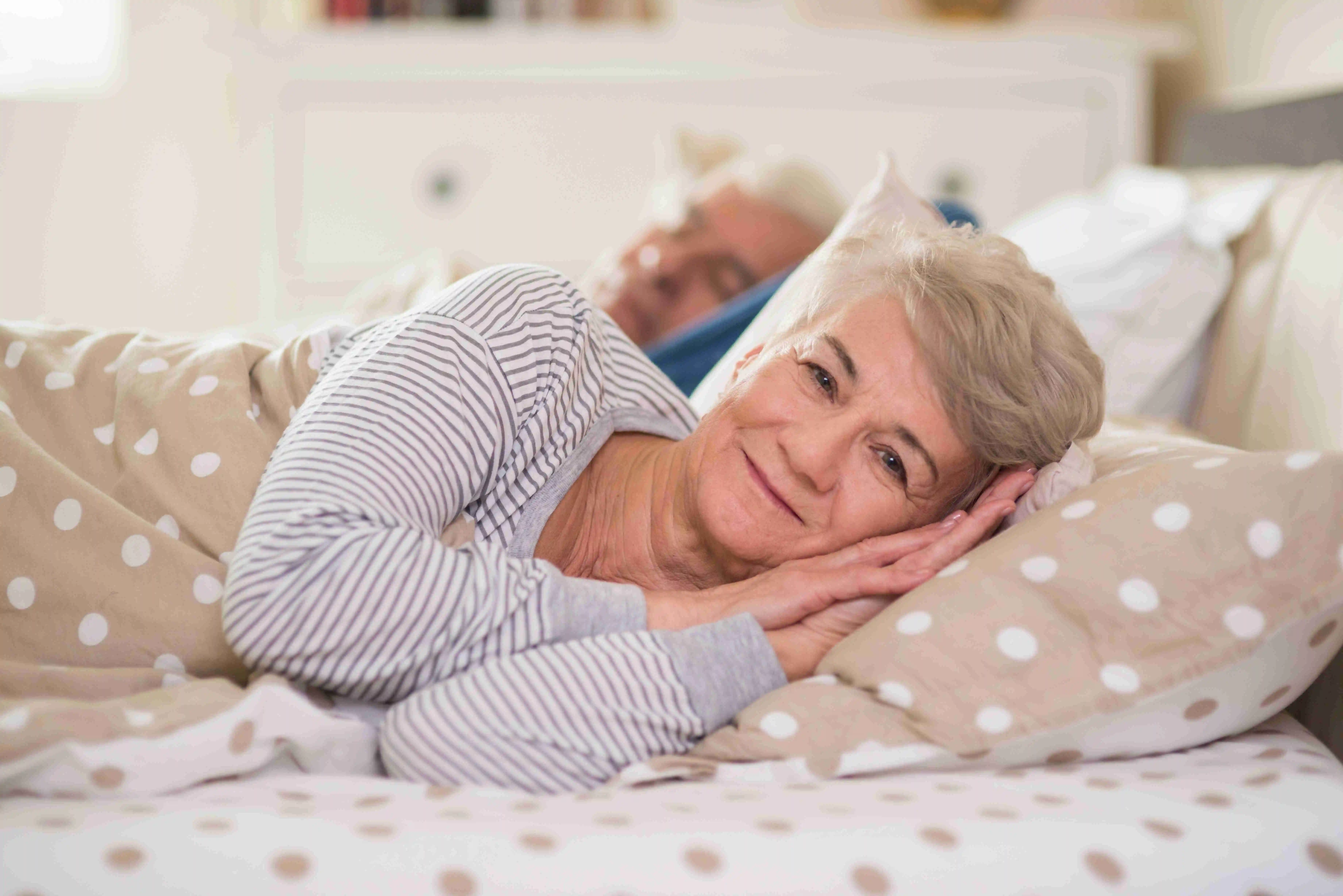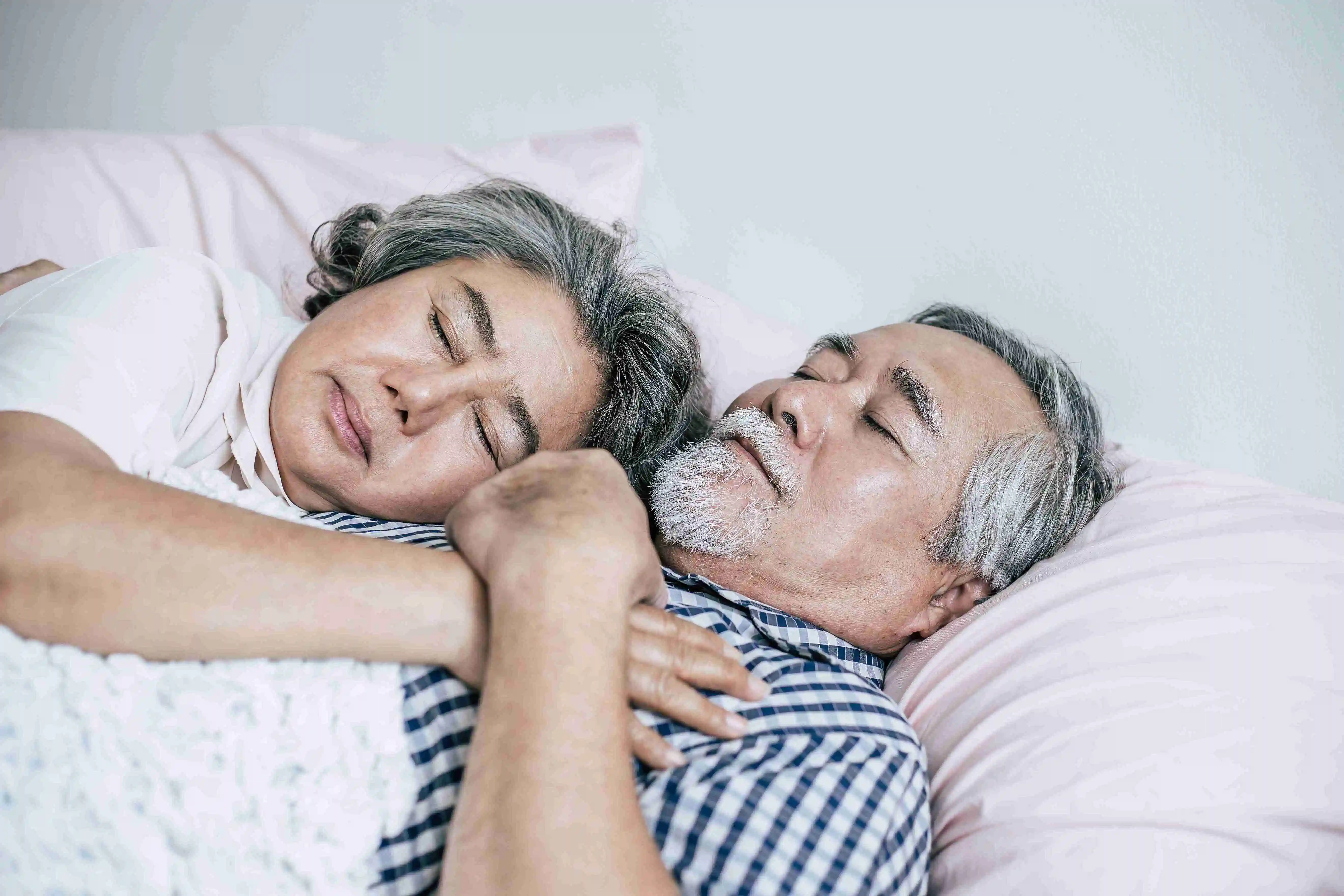
As we age, we might find that our sleeping patterns and overall quality shift and change over time; we could find ourselves feeling less rested even if we got a sufficient night’s sleep, or we might find ourselves falling asleep at different times each day, and that’s because aging can have a significant impact on our bodies and our sleep.
Aging and sleep problems
It is a common experience for older adults to have difficulty falling asleep and staying asleep throughout the night. A variety of factors can contribute to this. The decrease in the production of melatonin, a hormone that regulates sleep, is one factor.
Another factor is developing medical conditions that can interfere with sleep, such as chronic pain or sleep apnea. Additionally, older adults may experience changes in their circadian rhythm, making it more difficult to fall asleep at night and stay awake during the day.
How Aging Impacts Circadian Rhythms
Circadian rhythms are the natural, internal processes that regulate our sleep-wake cycle and other physiological functions, however, as we age, these circadian rhythms can become disrupted, leading to various sleep disorders and other health issues.
One of the main reasons for this disruption is the decline in melatonin production, which is a hormone that helps regulate sleep. As we get older, the production of melatonin decreases, making it more difficult to fall asleep and stay asleep throughout the night.
If you want to know more about Circadian Rhythms, check the article “Circadian Rhythm”
How much sleep do you need based on your age group?
| Age | Daily Recommended Sleep Time |
|---|---|
| Infants (4 months to 12 months) | 12 to 16 hours |
| Toddlers (1 to 2 years) | 11 to 14 hours |
| Children (3 to 5 years) | 10 to 13 hours |
| Children (6 to 12 years) | 9 to 12 hours |
| Teens (13 to 18 years) | 8 to 10 hours |
| Adults (18 to 60 years) | 7 hours |
| Older Adults (61 to 64 years) | 7 to 9 hours |
| Senior (65 or older) | 7 to 8 hours |
If you want to know more about how sleep affects different age groups and sleep patterns by age so you can always aim to sleep better at every age, check the articles, “Babies & Sleep”, “Children & Sleep", and “Teens & Sleep”.
How Does Growing Old Affect Sleep?
Inconsistent sleep schedule
As we grow older, our circadian rhythms tend to shift forward in time, which leads to us feeling very tired during the day, unlike younger adults who feel tired and sleepy during the night.
This shift in circadian rhythms leads to inconsistency in sleeping or daytime naps, which can affect the overall quality of sleep.
Waking up at night
There are four stages of sleep, with the first being the lightest and easily interrupted, and the fourth being the deepest, where you're not fully aware of your surroundings and your body is receiving the most rejuvenating effects.
Elderly individuals often remain in the lighter stages of sleep for extended periods, resulting in fragmented sleep experiences due to frequent disruptions during the night.
Napping during the day
It’s very common among adults, especially older adults, to take naps during the day, which doesn’t occur as much with younger adults and teens.
These daytime naps can be beneficial and can give a boost of energy after a long day of work; however, individuals who take longer naps might find it hard to sleep during the night.
Decreased Production of Sleep Hormones
As we grow older, the production of hormones such as melatonin, which play a crucial role in regulating our sleep-wake cycle, tends to decrease, and this decline in sleep hormone production can lead to difficulties falling asleep and staying asleep throughout the night.
Increased Risk of Sleep Disorders
Older adults are more likely to experience mental health issues such as insomnia, sleep apnea, restless leg syndrome, and periodic limb movement disorder. These disorders can disrupt the normal sleep cycle and lead to difficulties falling or staying asleep.
Medical Conditions and Medications
Older adults often struggle more with medical conditions and chronic diseases that can be exasperated with old age, which can interfere with their sleeping sessions. In addition, the medication that people who suffer from these conditions use can harm the overall quality of their sleep.
Sleep Issues Linked to Aging

Insomnia
In older adults, many factors contribute to insomnia, including changes in sleep patterns, medical conditions, and medication side effects. As a result, seniors may find themselves feeling worn out during the day, which can negatively affect their quality of life.
If you want to know more about anxiety and insomnia and their effect on sleeping, check out this article, “Anxiety and Insomnia”.
Sleep Apnea
Sleep apnea is a condition where breathing repeatedly stops and starts during sleep. This interruption in breathing can lead to fragmented sleep and excessive daytime sleepiness.
Nighttime Urination
This condition involves the need to wake up multiple times during the night to urinate. Frequent disruptions to sleep continuity can lead to daytime tiredness and decreased functioning. Nighttime urination can be caused by various factors, such as an overactive bladder, urinary tract infections, or certain medications.
Hypersomnia
Hypersomnia is defined as excessive daytime sleepiness, in which individuals may feel an overwhelming urge to sleep during the day, even after having a full night's rest, and this condition can greatly affect one's productivity and daily activities.
Pain
Pain can significantly impact sleep quality in older adults, as chronic pain conditions such as arthritis or back pain can make it difficult to fall asleep or stay asleep throughout the night, which can lead to sleep deprivation and exacerbate the pain symptoms during the day.
Learn More: Best Mattresses for Arthritis and Best Mattresses for Back Pain.
Daytime Drowsiness
Daytime drowsiness is another common sleep issue that older adults may face. It is characterised by feeling fatigued during the day, which can lead to difficulties in concentration and an increased risk of accidents.
Restless Legs Syndrome
Restless legs syndrome is a neurological disorder that causes uncomfortable sensations in the legs, often described as tingling or a crawling feeling. These sensations typically occur when the individual is at rest, leading to difficulty falling asleep or staying asleep.
Sleep Behavior Disorder
Sleep behaviour disorder is characterised by the absence of muscle paralysis during REM sleep, causing individuals to physically act out their dreams. This can lead to disruptive behaviours such as kicking, punching, or even shouting during sleep.
Sleep Tips for Older Adults

Maintain a Consistent Sleep Schedule
One of the best ways to regulate your bedtime and maintain a restful night's sleep is to have a consistent sleeping schedule. Having a specific bedtime that you sleep at has many benefits, such as improved metabolism, decreased risk of health issues, and enhanced focus during the day.
Create a Relaxing Bedtime Routine
It’s advisable to create a bedtime routine to set the mood for yourself before going to sleep to make it easier for your body to relax. You can read, journal, meditate, or even take a warm bath before going to bed, which will help you fall asleep faster. It’s also important to maintain your bed hygiene so you won’t have any irritants that prevent you from falling asleep. Also, having a proper mattress for seniors would really help with falling asleep.
Regular Exercise
Regular exercise has shown impressive results in terms of regulating sleep cycles in older adults, as it balances levels of different hormones and also promotes sleeping as your body recovers the muscle tissues and regains its strength back during sleep.
Limit Caffeine and Alcohol
Caffeine can be very beneficial, but once it interferes with your sleep patterns, it becomes harmful, as it can cause symptoms similar to insomnia, which will lead to decreased productivity and a lack of focus during the day. So we recommend limiting your caffeine and alcohol intake if you’re struggling to fall asleep during the night.
Minimize Distractions
Try to keep your phone, tablets, and electronic devices away from the bed, as they can be a major distraction from sleeping. It’s very common nowadays for people to get to bed on time but not fall asleep for hours because they're on their phones.
Address Underlying Medical Conditions
If you’re suffering from a chronic disease or condition that prevents you from getting a restful night’s sleep, then it’s crucial to consult with a medical professional and figure out how to address this issue and mitigate its negative effect on your sleeping, as not addressing these issues will only exacerbate its effects over time.
FAQs
Why is it harder to sleep when you get older?
As we age, the quality and quantity of our sleep tend to decline, making it harder to get a good night's rest. There are several reasons why sleep becomes more challenging as we get older. Firstly, changes in our biological clock, known as circadian rhythm, can disrupt our sleep patterns. This can lead to difficulties falling asleep or staying asleep throughout the night. Additionally, older adults may experience more health conditions that can interfere with sleep, such as chronic pain, sleep apnea, or restless leg syndrome.
Is it safe to use sleeping pills if I’m having a hard time falling asleep?
While sleeping pills can be effective in the short term to cope with sleep changes with age, relying on them for a prolonged period may lead to dependence and other potential health risks. It is advisable to consult with a healthcare professional before starting any sleep medication regimen.
Do you need less sleep as you get older?
Not really; older people need almost the same amount of sleep that young adults require; however, they often have a hard time meeting their sleeping needs due to many factors that can vary from suffering from a medical condition to consuming a larger quantity of caffeine. Some conditions could lead to excessive sleeping in the elderly, or the elderly sleeping too much. These changes in sleep patterns are a result of ageing, but there is no direct correlation between ageing and sleepiness, or between a lack of sleep and ageing. This is because individuals of any age can suffer from underlying conditions that prevent them from getting quality sleep at night.
How do I develop a bedtime routine?
Try to establish a consistent sleep schedule, which means going to bed and waking up at the same time every day, as this helps regulate your body's internal clock and signals when it's time to sleep. Also, it's important to create a relaxing pre-bedtime routine. This can include activities such as reading a book, taking a warm bath, picking a proper pillow, or practicing relaxation techniques like deep breathing or meditation.
Does a lack of sleep make you look older?
Lack of sleep is known to have various negative effects on our overall health and well-being. One of these effects includes its impact on our appearance, specifically making us look older. It can lead to the development of fine lines, wrinkles, and sagging skin, making us appear older than we are.
Conclusion
Ageing has a significant impact on our overall sleep quality, leading to irregular sleep schedules, frequent nighttime awakenings, and the development of sleeping disorders. However, there are ways to combat that.
By developing a healthy bedtime routine, limiting distractions, exercising regularly, and realising the link between sleep and ageing, we can lessen the effect that ageing has on our sleep quality and overall health.
Kelsey Butler, MS, RDN
Kelsey Butler is a Registered Dietitian Nutritionist with a Master's in Nutrition Sciences. She is an expert in nutrition research, coaching, and content development. Kelsey takes a mindful approach toward health and values building relationships with all foods. She understands the need to set personalized goals because not one size fits all, from dietary preferences to lifestyle habits.


